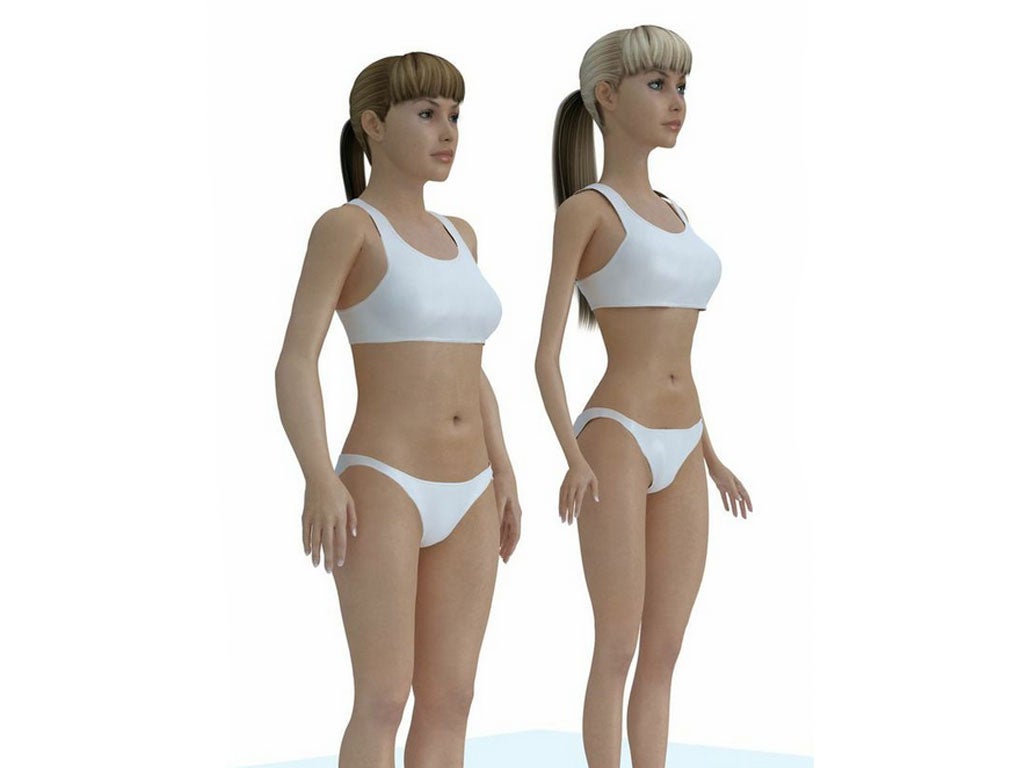Barbie vs real women: why can't we merge the two?
Ask any test group of subjects to describe the attributes of a ‘perfect’ female physique and they will put together a composite image of…Barbie


We’ve all been there – sailing confidently through life at the helm of our own ship of tastes and values – when we suddenly have a realisation that makes us hate ourselves a bit.
It happened to me the day I realised that the tune that had lodged itself in my brain and caused me to bop merrily all day was in fact a Cheryl Cole track and I had to challenge my perception of myself as a moderately snotty muso. A friend of mine had a similar experience the day she realised she slightly fancied David Cameron. We’re none of us immune to emotions which are at odds with the things we thought we thought.
Ask any person with an ounce of sense whether they think Barbie represents the perfect paradigm of female beauty and they’ll pull a derisory type expression, necessitating a wrinkling of the nose accompanied by an exclamation of “No! Of course not!”.
Ask any test group of subjects to describe the attributes that make up the ‘perfect’ female physique and they will put together a composite image of…yep, you guessed it…Barbie.
Overseeing this exercise makes you feel a little like Derren Brown. You ask any group of people to shout out physical qualities which make up their image of the ‘perfect’ woman. Then you smirk knowingly to yourself as the answers you know will follow pour forth.
She’s always tall, but not ‘too tall’ (whatever ‘too tall’ should transpire to mean). She’s thin, but ‘curvy’ at the same time. She has large, perky breasts and a bottom you could balance a plate on. She has disproportionately long and slender limbs. She is tanned, with a blemish-free complexion. She has long straight or wavy hair (usually blond), a long, slender neck, large blue or green eyes, a small nose, full lips, straight white teeth and, they will invariably tell you, she is smiling.
She is Barbie. And the moment you point out that fact to your assembled audience and see the light of realisation dawn in their eyes you will also perceive the distaste they have for their own silly brains and mouths for having described her.
Last week, Nickolay Lamm published images which visually demonstrate the vast chasm between the physical proportions of Barbie and those of your average nineteen year old American woman. Barbie is significantly taller, yet despite this her waist is almost half as small. Barbie’s bust, if she were real, would measure a hefty 91.44cm, twice the circumference of her titchy abdomen.
It’s well publicised that, if Barbie were a real woman, she’d be unable to walk, instead having to crawl around on all fours because she couldn’t support the weight of her own almighty bosom. I also have my own doubts as to whether her slender neck would be able to take the weight of her disproportionately massive head.
Whether or not Barbie creates body anxiety or is merely the product of it, is the subject of eternal debate. Are young girls influenced by the visual culture of Barbie to such an extent that they grow up believing that is how they should look? Or is Barbie merely a projection of all the worst aspects of our body-obsessed culture, representing an impossible ideal many women strive for but can never achieve?
It actually doesn’t matter. The fact is, Barbie has to change. Let’s create a new ideal body projection. Something that represents perceived health and individuality. Something we can, as a society, be proud of. Something that, when we describe it, doesn’t make us cringe with shame.
Body image attitudes are transforming. It’s time Barbie did, too.
Join our commenting forum
Join thought-provoking conversations, follow other Independent readers and see their replies
Comments
Bookmark popover
Removed from bookmarks